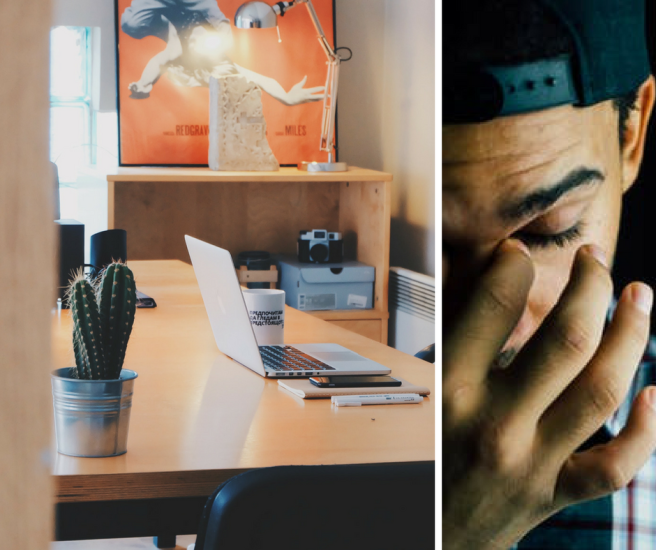
LCD screens surround us. Many people stare at computer screens throughout their workdays, taking breaks only to check social media on their smartphones.
While there are far fewer concussions in the world than there are screens, the frequency with which these injuries occur has been increasingly acknowledged in the mainstream media. Athletes such as Sydney Crosby, Steve Young, and Eric Lindros just to name a few, have brought the severity of Post Concussion Syndrome (PCS) to the forefront of public discourse.
A person who suffers from PCS will experience symptoms such as dizziness, nausea and headaches for an extended period of time after the initial injury. This can last for weeks or months, and there is no clear answer as to how it can be minimized.
The few treatment options that health professionals agree to are: rest, and a complete break from LCD screens.
While all cognitive activity can worsen the severity of headaches and dizziness in people with concussions, there are several reasons why the use of LCD screens in particular can exacerbate these symptoms:
- Images that appear on LCD screens are made up of pixels that refresh at a rate of 60 times per second, even when the content on the screen is not changing.
- The rapid movement of these pixels means when we look at screens for too long, we strain our eye muscles.
- For someone who has suffered a brain injury, this strain can be detrimental.
- Further, the backlighting of LCD screens can cause cognitive fatigue, headaches, dizziness and nausea in concussion patients.
22-year-old Maggie Callaghan, a varsity athlete who has suffered several sports related concussions over the past few years says she tried to avoid computer screens all together for weeks after her first concussion.
“I couldn’t look at a screen for more than a few minutes without feeling intense pain behind my eyes that would quickly evolve into a full blown migraine” Callaghan said. “I tried to avoid computer screens altogether for as long as I could.”
Maggie is one of many young concussion victims for whom the inability to study using a computer screen resulted in severe stress.
“It sort of becomes a cycle,” says Joe Ross, a 20-year-old student who, like Maggie, has suffered from concussions. “You feel sick when you use your computer to do school work, but when you aren’t able to keep up with your school work you feel anxious which can be harmful to the recovery process.”
Anxiety is just one of many mental health problems that disproportionately affects concussion patients. In fact, two out of three concussion patients experience depression following their recovery.
The social isolation that comes from being unable to communicate using computer and phone screens, as well as the stress associated with being unable to complete day-to-day tasks, are thought to be two of the primary causes of depression in concussion victims.
As difficult as it can be for students to abstain from using screens following their concussions, the struggle to recover from PCS without the use of computers can be even more intense for working adults.
“The recovery process would have been even more stressful if I had been working in a professional environment at the time of my concussions,” says Maggie. “So many jobs involve, if not completely revolve around, using computers. Being unable to work and not knowing when I would get better would be seriously nerve-wracking.”
Currently, treatment options for PCS do very little to account for the importance of screens in the average person’s everyday life. Patients have to work hard to engage in society and keep up with school or work without the use of their computer screens.
This can often be one of the most unexpected challenges of dealing with PCS.
So where does this leave people needing to return to a pre-concussion life while dealing with PCS?
While there are no solutions, one recent pilot study commissioned by the Canadian Concussion Centre indicated that people experiencing PCS were able to use a non-LCD screen, thus enabling a quicker return to school or work life.
PHOTOS via pixabay
Filed under: Concussion Tagged: Canadian Concussion Centre, Colin Harding, Concussion, Iris Technologies, LCD Screens
![]()




